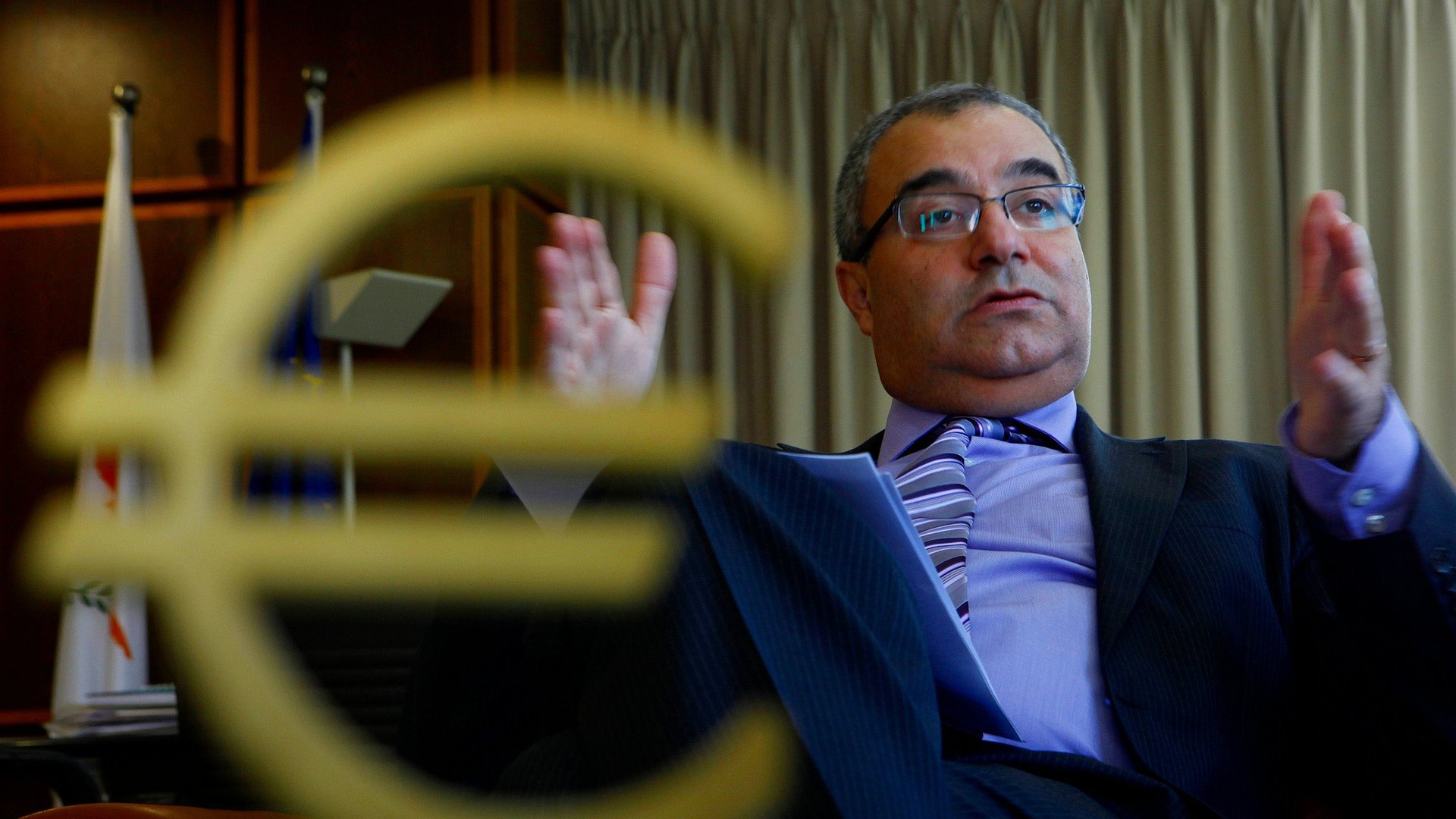What makes rescuing Cyprus so tricky?
In short, two things: Fear of setting a precedent that has already been set once, and Russian money laundering.


In short, two things: Fear of setting a precedent that has already been set once, and Russian money laundering.
Cyprus has finally thrown in the towel. After credit downgrades locked it out of international debt markets for the past year, and with its financial sector is struggling thanks to heavy investments in nearby Greece, the government is asking for an aid package amounting to some €16.7 billion ($22.3 billion).
Compared to other aid packages approved during the European financial crisis, that’s small. But it wouldn’t stop the country’s debt-to-GDP ratio from swelling to an unsustainable 140% by the end of the program, higher than any European country but Greece. That’s not an outcome the International Monetary Fund (IMF) would support.
But the hole in government finances isn’t as big as that in the balance sheets of the country’s banks, which contain $91.5 billion in deposits, more than three times the size of the country’s economy. Should there be a bank run, the government would be hard-pressed to recapitalize them or otherwise prevent chaos.
So European ministers are considering a “bail-in,” which would force creditors to take losses on bank deposits and sovereign debt to help get Cyprus back on its feet, according to a European Commission memo describing options for a bailout obtained by the Financial Times. While sometimes considered radical, such bail-ins are often the only way financial crises are resolved. Greece has seen its lenders take several losses already, and it’s likely that European governments holding Greek debt will forgive some in the future. Bail-ins also resolved the financial crises at the end of the 1990s. It’s very hard for a country in serious fiscal trouble to get out without creditors’ help.
But there are two bigger problems. The first is that European ministers (particularly German leaders, looking to their country’s elections this year) promised that there would be no further bail-ins after Greece. That promise may have been a political necessity, but it was “foolish” in the eyes of one former IMF staffer, given the likelihood of an eventual reversal. Now Germany’s leaders are forced to choose between more direct aid, which won’t be popular at home, or opening the door to more haircuts for bondholders—including German banks and the German government—in future negotiations.
“The focus near-term will probably be Ireland, whch is pressing hard for better terms on its bailout, more like Greece than Cyprus,” the staffer says. “A solution for Cyprus will obviously raise the stakes.”
The problem of precedent, however, may be overshadowed by another. Cyprus’ secretive bank laws attract offshore money—which is why its financial sector is so big relative to the economy. In particular, Russian companies and individuals have deposited some $18.5 billion in the country’s banks, likely in an effort to avoid taxes and other scrutiny.
“Cyprus sent $128 billion in [foreign direct investment] into Russia in 2011, which is more than five times the size of its GDP,” Dr. Dev Kar, the lead economist at NGO Global Financial Integrity, says. “For Cyprus to be able to send this much money into Russia, it can’t be sustained unless they receive the funds through illicit means. It’s a laundry machine for dirty Russian money.”
That’s why Russia’s government gave Cyprus a €2.5 billion loan last year—but it also makes European leaders reluctant to endorse a bailout that would essentially protect the funds of money launderers. That reluctance, combined with the IMF’s pressure for a sustainable program, could make a bail-in more likely. But that would likely require more disclosure about who uses the country’s banks, and measures—like higher taxes and perhaps capital controls—that would reduce the country’s ability to act as Russia’s own Cayman Islands. (The Caymans, incidentally, also needed a bailout from one of its patrons, the UK, in 2009.)
“Even though they are attracting all these billions of dollars, they don’t make much money out of it,” Kar says. “At the heart of the adjustment would be macroeconomic stabilization, bringing down deficits, bringing down the rate of inflation, making it more attractive as an investment destination, which is more than being able to attract funds as such.”
European leaders hope a new regime in Cyprus, to be elected on Feb. 13, will be able to confidently endorse an agreement of that nature by March.